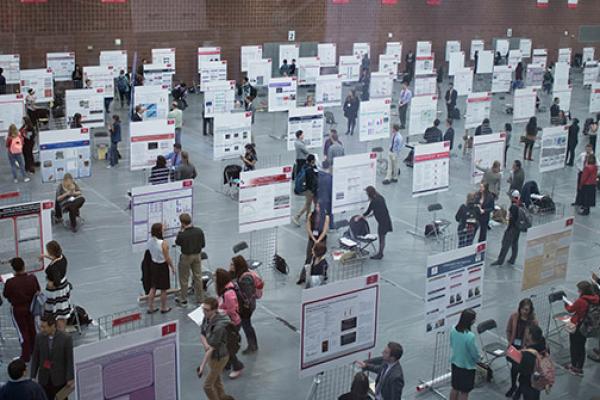News

Six Arts and Sciences faculty members named 2024 AAAS Fellows
The 2024 class of Fellows of the American Association for the Advancement of Science (AAAS) includes eight investigators from The Ohio State University, with six scientists coming from the College…

Department of Geography to acquire state-of-the-art mobile weather radar
“If you feel it, chase it,” was the tagline for “Twisters,” a 2024 blockbuster film centered around a group of storm chasers who study tornadoes. And for students at Ohio State, the opportunity to…

New DESI results strengthen hints that dark energy may evolve
Researchers see hints that dark energy, widely thought to be a “cosmological constant,” might be evolving over time in unexpected ways.
New results from the Dark…

Arts and Sciences students shine at 2025 Denman Undergraduate Research Forum
A number of College of Arts and Sciences undergraduate researchers received awards at the 2025 Richard J. and Martha D. Denman Undergraduate Research Forum. 25 students from 12 majors placed…

Astronomer finds gas giant exoplanets formed earlier than previously thought
A fresh look at past data reveals that exoplanets with masses similar to Jupiter formed much sooner than previously thought, according to new research.
The Ohio…

Flight planning for success with Pilot Josh Yurman
“There comes a point – a moment, literally a moment – in every single trip I have, where I’m sitting at a roadside cafe, looking at something in a museum…I’m in Tokyo, I’m in Barcelona, and I’m in…

Asia Society Hong Kong Center hosts discussion with Ohio State Dean David Horn
The Asia Society Hong Kong Center hosted David Horn, dean of the College of Arts and Sciences at The Ohio State University, for a conversation about “Why the Liberal Arts Matter” on February 7.…

New technology lights way for accelerating coral reef restoration
Scientists have developed a novel tool designed to protect and conserve coral reefs by providing them with an abundance of feeding opportunities.
The device, dubbed…

Cracks in Greenland Ice Sheet are growing, study finds
A new study published this week in Nature Geoscience reveals that in response to climate change, the Greenland Ice Sheet is developing significantly more surface crevasses in key…
